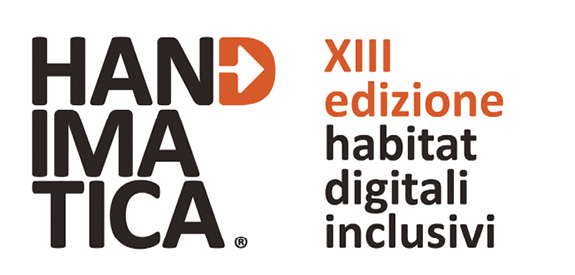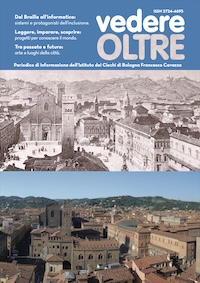The 13th edition of Handimatica, an industry event on disability, was held on 28-29-30 November 2024at the Aldini-Valeriani Professional Educational Institute in Bologna. As always, the UICI (Italian Union for the Blind and Partially Sighted), together with the F. Cavazza Institute for the Blind, set up their stand in a classroom and offered visitors a panorama (still partial) of some of the activities they have organized, specifically the LetiSmart project, sponsored and funded by the UICI (for information, visit www.letismart.it). Guests included the Helen Keller Guide Dog School, whose operators demonstrated the services it provides, as well as the Federazione delle Istituzioni Pro Ciechi (Federation of Institutions for the Blind), which offered informative material on its activities and demonstrated "Lego Braille," an innovative game for children and adults alike (www.lego.com/it-it/theme/braille-bricks/about).
In addition, from 2 to 5:30 PM on Friday 29 November, a seminar organized with the Istituto Nazionale Valutazione Ausili e Tecnologie (National Institute for Assessment of Aids and Technologies - www.invat.info) and conducted by Dr. Franco Lisi, Managing Director of INVAT, examined three specific topics:
1. LetiSmart Project: state of the art and prospects for expansion throughout Italy;
2. Project for creation of a PDR (Reference Practice), with the ambitious goal of creating guidelines for the accessibility-usability-safety of electrical appliances; the project is in its final planning stages with
Modeling activities of the Anteros Tactile Museum educational services
UNI, Italian Standardization Institute, recognized throughout Europe (www.uni.com), UICI, and INVAT;
3. D.A.Re. (Devices & Aids Register) Project, a multicenter project on the distribution of aids and on the levels of self-sufficiency achieved by blind and visually-impaired persons (www.invat.info/cosa-facciamo/ progetto-dare).
We would like to offer a brief comment on what we saw and perceived at Handimatica.
We had the distinct feeling that fewer people attended compared to the last in-presence edition in 2017. We also noted, with astonishment and bitterness, that the event was attended by significantly fewer distributors of aids for the visually impaired, including well-known industry operators. Lastly, we were greatly disturbed by the almost total absence of displays of Braille devices and Braille products printed on paper. We don’t intend to force our way into the tiflological conflict between supporters and detractors of the Braille system, a landmark in the socio-cultural emancipation of blind people, just as other reading/writing systems were the conditio sine qua non for the evolution of humanity. However, we want to express our deep regret for the apparently unstoppable decline of the Braille reading/writing system: it’s as if the all-digital generation Z has abandoned the idea of communicating with pen and paper, of reading and leafing through the classics, magazines, and printed documents in general.






.png)